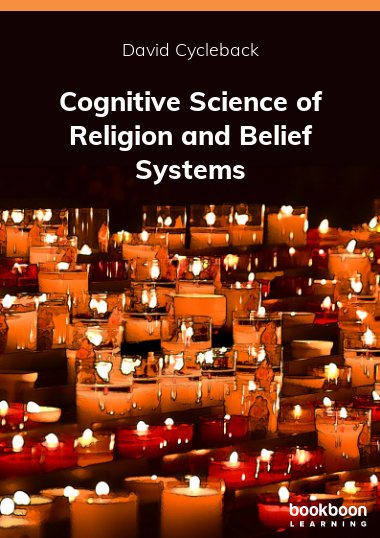This textbook shows how human minds work, focusing on the neuroscience, physiology, cognitive and evolutionary psychology humans use to form their beliefs and belief systems, both religious and non-religious. Topics include the nature, causes and meaning of mystical experiences, Eastern versus Western psychology, brain hemispheres and different ways of processing sensory information, cognitive and evolutionary reasons behind the belief in and conceptions of gods, the epistemological problems caused by symbolic language, the influence of sensory abilities, and the potential influence of artificial intelligence, medicine and technology.
About the author
David Cycleback is Director of Center for Artifact Studies ( centerforartifactstudies.org ), an internationally known scholar working in cognitive science, philosophy and artifacts history, and a best-selling author. He was runner-up for the International Book Award for Philosophy for Noise Music: Cognitive Psychology, Aesthetics and Epistemology and a four-time Eric Hoffer Award Finalist. In their second printing by China's National Photographic Art Publishing House, his guides Judging the Authenticity of Prints by the Masters and Judging the Authenticity of Photographs were the first comprehensive books on the subjects published in Asia, and Art Perception is one of four books students are recommended to study in preparation for India's Common Entrance Exam for Design (CEED) for postgraduate studies in technical design. He has been a practicum coordinator for the University of Washington, and an authenticity researcher for Arizona State University's Society for American Baseball Research. His other books include Cognitive Science of Religion and Belief Systems, Understanding Human Minds and Their Limits, Limits of Science, Philosophy of Artificial Intelligence, and Authenticating Art and Artifacts: An Introduction to Methods and Issues.


